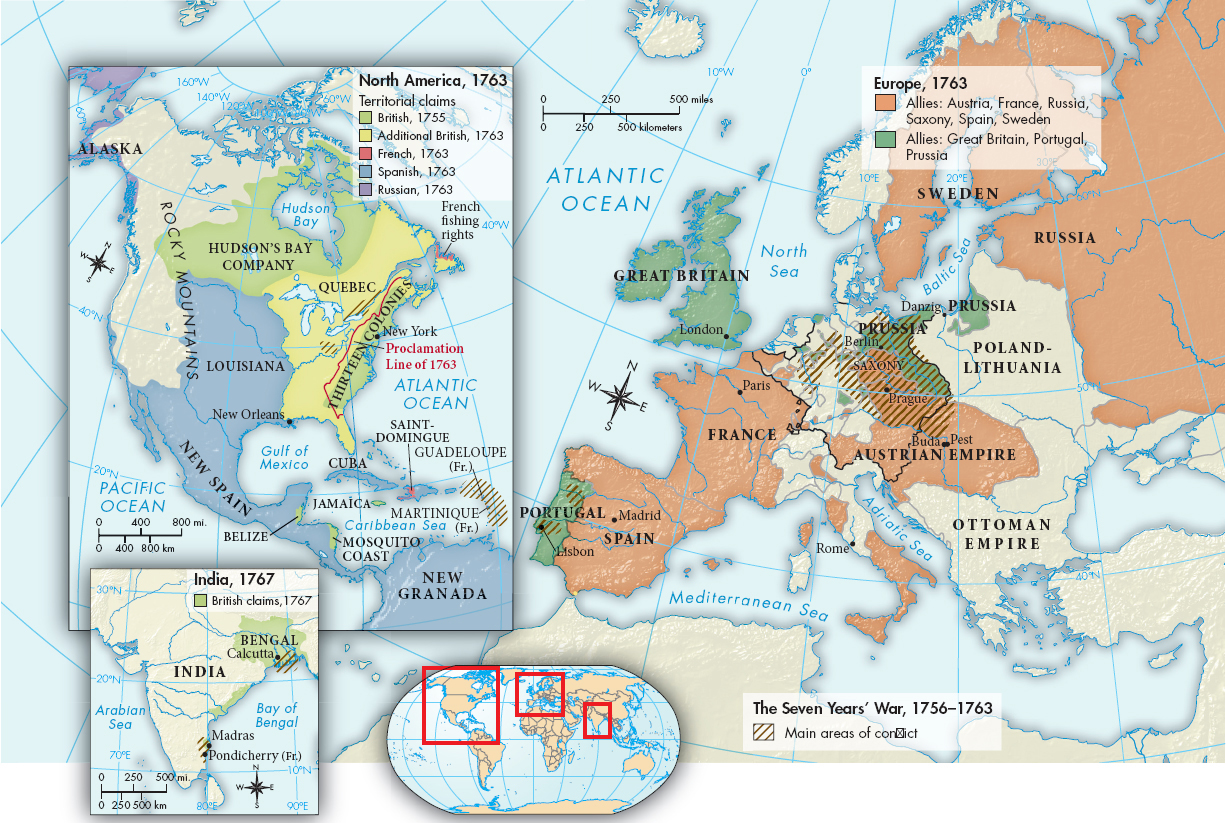The Seven Years’ War
The roots of revolutionary ideas could be found in the writings of Locke or Montesquieu, but it was by no means inevitable that their ideas would result in revolution. Instead, events — political, economic, and military — created crises that opened the door for radical action. One of the most important was the global conflict known as the Seven Years’ War (1756–
The war’s battlefields stretched from central Europe to India to North America, pitting a new alliance of England and Prussia against the French and Austrians. Its origins were in conflicts left unresolved at the end of the War of the Austrian Succession in 1748 (see "Frederick the Great of Prussia" in Chapter 16). In central Europe, Austria’s Maria Theresa vowed to win back Silesia, which Prussia took in the war of succession, and to crush Prussia, thereby re-
Unresolved tensions also lingered in North America, particularly regarding the border between the French and British colonies. The encroachment of English settlers into territory claimed by the French in the Ohio Valley resulted in skirmishes that soon became war. French forces achieved major victories until 1758, but the tide of the conflict turned when the British diverted resources from the war in Europe.
British victory on all colonial fronts was ratified in the 1763 Treaty of Paris. Canada and all French territory east of the Mississippi River passed to Britain, and France ceded Louisiana to Spain as compensation for Spain’s loss of Florida to Britain. France also gave up most of its holdings in India, opening the way to British dominance on the Indian subcontinent (Map 19.1).

War, 1755–
By 1763, Britain had become the leading European power in both trade and empire, but such power came at a tremendous cost in war debt. France emerged from the conflict humiliated and broke, but with its profitable Caribbean colonies intact. In the aftermath of war, both British and French governments had to raise taxes to repay loans, raising a storm of protest and demands for fundamental reform. The seeds of revolutionary conflict in the Atlantic world were thus sown.
>QUICK REVIEW
How did eighteenth-